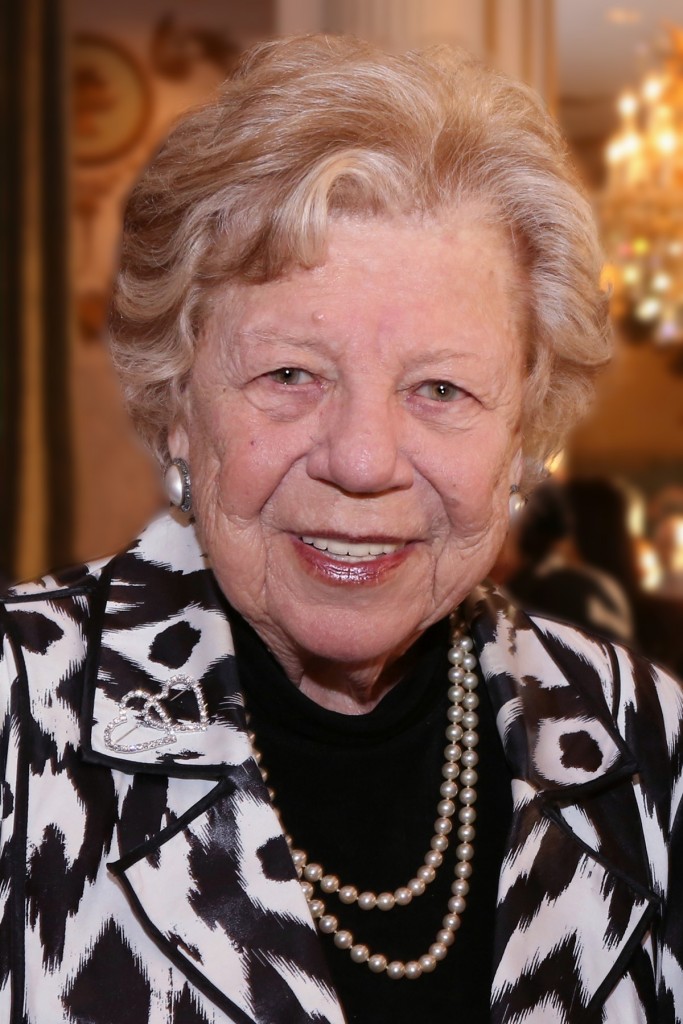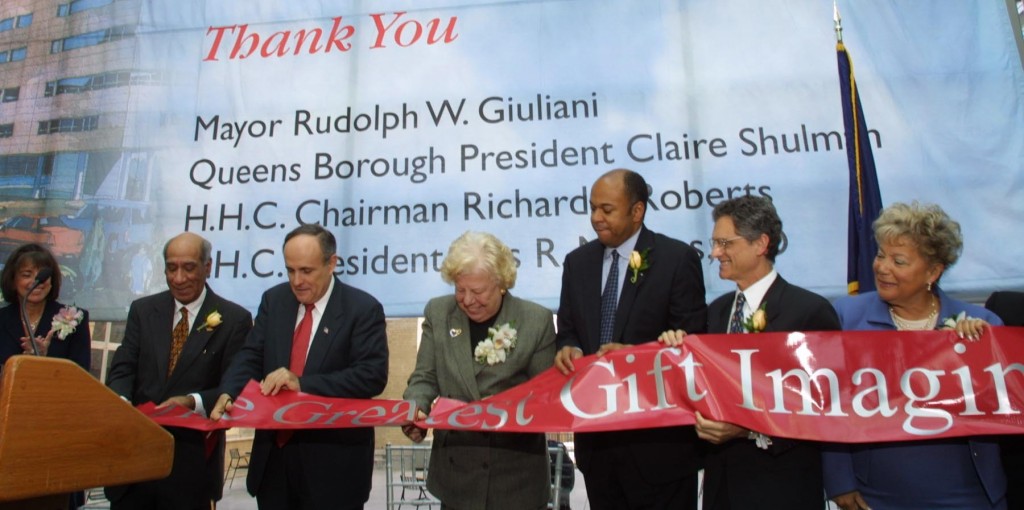There is hardly a cultural institution in Queens that Claire Shulman didn’t have a hand in building or resurrecting.
 Claire (Kantoff) Shulman ’46 is the last to call herself a politician. She prefers to see herself as a nurse who embraced government administration. But her long record in New York City politics—including 16 years as Queens Borough president—proves that she is, indeed, a savvy political leader, one who navigated a convoluted bureaucracy to achieve tangible results.
Claire (Kantoff) Shulman ’46 is the last to call herself a politician. She prefers to see herself as a nurse who embraced government administration. But her long record in New York City politics—including 16 years as Queens Borough president—proves that she is, indeed, a savvy political leader, one who navigated a convoluted bureaucracy to achieve tangible results.
There is hardly a cultural institution in Queens that Shulman didn’t have a hand in building or resurrecting. At 88, she can recall the ins and outs of bringing to life many of the borough’s cultural gems, including the film and television production studios in Astoria and the adjacent Museum of the Moving Image. There’s also the Queens Hall of Science, the Queens Zoo (where the two bald eagles are named for Claire and her husband, Melvin), the Queens Museum of Art and the Queens Botanical Garden, among others.
“We rebuilt and built all the cultural stuff so the people of Queens who couldn’t afford Manhattan had a place to go,” Shulman said. Bringing Queens out from the shadow of Manhattan was a theme of Shulman’s leadership. Of her many building projects, Shulman takes special pride in her hard-fought battle to build a new Queens Hospital, replacing the hospital where she trained and first worked as a nurse.
In 1997, Mayor Rudolph Giuliani announced that the city would fund a new 200-bed hospital adjacent to the decrepit original one. In covering the news, The New York Times wrote that Shulman had “pushed for the project so fervently for years that she has become personally identified with it.” Shulman described the city’s medical politics: “The city of New York is considered one region. All of the beds are in Manhattan.” Bringing beds and services to Queens was her attempt at evening the score.
“I mean if you had a heart attack in Queens, you’d die on the Queensboro Bridge because you wouldn’t make it to the hospital in time,” she said.
Asked whether she had imagined she would have a career in politics, Shulman had a ready answer, “No. I’m a nurse.”
Shulman was one of the first women to enroll in Adelphi’s Central Collegiate School of Nursing—a unit of the U.S. Cadet Nurse Corps, which opened in 1943. She was just 17 when she transferred to Adelphi from Brooklyn College. She wanted to be a nurse and earn her bachelor’s degree—not just her R.N.—and, according to an ad she saw on a city trolley car, she could do both at Adelphi.
During her Adelphi training, Shulman opted to work at Queens General Hospital. “I felt that I would get more experience in a hospital that relied more on nurses than on doctors,” she said.
After graduation, she returned to the hospital to work in female medicine. A year later, she was appointed the department’s head nurse. She was 21 and the only nurse on the staff with a bachelor’s degree. She recalled that the promotion “did not exactly endear me to the older nurses on the floor.”
According to Shulman, the fact that so many male doctors were drafted into World War II meant that nurses “ran that hospital.” She added, “My experience in the hospital taught me that I could do anything.”
Shulman stayed on as the head of female medicine until her first child (Lawrence, who is now the chief of staff at Dana-Farber Cancer Institute) was born in 1950.
More than a decade later, Shulman found herself as the president of the Mothers’ Club at her children’s school—P.S. 41 in Queens. “Nobody else, of course, wanted that job,” she quipped.
By then, she also had a daughter (Ellen, now a physician-astronaut who participated in three Space Shuttle voyages), and was a full-time homemaker.
Quickly, she showed her prowess for getting things done. Recognizing that the school was in need of repair, Shulman and a friend who was a lawyer took up the issue with the head of
the New York City Board of Education—in person. “We said, ‘Fix this school up or we’re going to sue you as a slum lord,’” Shulman recalled, laughing. “Nobody knew what a slum lord
was in those days, but we were very creative.”
The tactic worked. The school was refurbished. Property rates went up, and Shulman won an appointment to the district planning board.
By 1972, she became director of all 14 of the planning boards in Queens. With access to the budget, she started to build up the borough, from schools and libraries to cultural institutions.
“We did a lot of things. I’m an old nurse, so I could do 20 things at the same time,” Shulman said.
In 1980, Queens Borough President Donald Manes appointed Shulman as his deputy borough president. Six years later, he resigned after being caught up in a massive scandal, and Shulman was named his successor by the City Council. Later that year, she won an election for the post. She won the vote three more times before term limits forced her to step down in 2001.
Shulman surrounded herself with talent and is quick to acknowledge the contributions of her deputies. For aspiring politicians, she offers this advice: “You cannot do this alone. I had the best staff.”
She acknowledged, too, that in politics, doggedness pays off. “When you start a project, you have to make sure [that] until that shovel goes in the ground, you don’t let go. Otherwise, middle management will make their own priorities and it will vanish.”
Asked what it was like to be a woman in politics at the time, Shulman said, “Well, I’ll tell you, I didn’t have a tough job because I was so much older than everybody else, and they were afraid to deal with me. They didn’t say, ‘We’re not going to listen to her because she’s a woman.’ They said, ‘We’d better listen to her because she’s like our mother.’”
Joanne Shapiro, “a Queens insider,” offered the Daily News a slightly different angle. In an admiring portrait of Shulman, which the paper ran at the end of her term in 2001, Shapiro offered this analysis: “Most people think of her as a nice old grandmother, not a politician. But she’s brilliant at it. She’s a master.”

Claire Shulman ’46, Queens Borough president from 1986 to 2001 (fourth from right) is joined by other dignitaries, including New York City Mayor Rudolph Giuliani, at the opening of a new Queens Hospital Center in 2001.